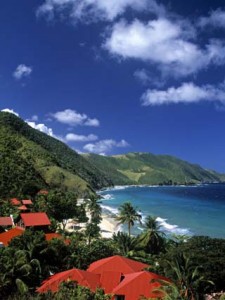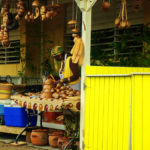Edited by Richard Ammon
GlobalGayz.com
August 2017
The British in the Caribbean
The British Virgin Islands (BVI) are small parts of a very long archipelago of islands that stretch from South America to Florida in North America. The main BVI islands are Tortola, Virgin Gorda, Anegada, and Jost Van Dyke; there are about fifty other smaller islets and cays and only about 15 of the islands have inhabitants. The capital is Road Town, on Tortola, the largest island.
Actually, the BVI consists of over 36 islands (or 40 if one counts the rocky outcrops) with a total land area of 59 square miles scattered across 1,330 square miles of sea. Sixteen of the islands are inhabited, the largest being Tortola (21 square miles) where the capital city Road Town is located, Anegada (15 square miles), Virgin Gorda (8 square miles) and Jost van Dyke (3.4 sqare miles). Rich vegetation, sandy beaches, numerous yachting marinas and fine coral reefs make the islands a desirable tourist destination; there is a permanent population of about 28,000.
There are some archeological artifacts to suggest the presence of settlers as long ago as 1500 BC. The first recorded viewing of the islands by European explorers is believed to have been by Christopher Columbus in 1493 during his second sailing to the ‘new world’.
Subsequently the major sea powers–English, Dutch, French, Spanish, Danish–sought control of the region for the next 200 years. The ultimate victors were the British and the Danish–who sold out in the 20th century to the USA while the Brits are still there.
Today’s adventurers are the tourists who account for 45% of the national income: about 800,000 people visit the British islands each year (500,000 by cruise ship).
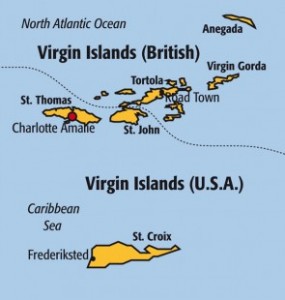 The BVI are a British overseas territory, not a former colony, The present Constitution was adopted in 2007, with a large measure of internal self-government granted to the islands. As such the Islands are required to comply with British law, in alignment with the European Convention of Human Rights, which ensure non-discrimination toward any citizen. This is especially important since the major industries are international tourism and international financial services.
The BVI are a British overseas territory, not a former colony, The present Constitution was adopted in 2007, with a large measure of internal self-government granted to the islands. As such the Islands are required to comply with British law, in alignment with the European Convention of Human Rights, which ensure non-discrimination toward any citizen. This is especially important since the major industries are international tourism and international financial services.
The most serious crime in BVI involves drug trafficking (and secretive illicit financial deals, which no one talks about). BVI is a major transit route for traffickers because of its numerous small uninhabited islands and close proximity to the USVI and Puerto Rico, which serve as gateways to the US mainland. Drugs also move through the BVI to the UK and continental Europe. However, the BVI has achieved considerable success in drug interception with significant seizures over the past recent years of cocaine and drug related cash.
Change in Attitude and Laws
Gay tolerance for the British Caribbean territories took a significant and ironic turn for the better in 1997 when the Cayman Islands (also British) refused to allow a gay cruise ship into port. The resulting media uproar and public outrage soon brought about a demand from the British government that all UK territories repeal anti-gay discriminatory statutes. Resistance to these changes was high in the conservative Caribbean culture so the UK was forced to unilaterally disqualify the local laws against homosexuality. In 2001, the United Kingdom forced the repeal of laws in its overseas dependent territories such as The Turks and Caicos Islands, The Cayman Islands, Montserrat and Anguilla.
Since then, the Caymans and other UK ports have turned around and now welcome all cruise ships and their paying passengers. The pink dollar is quite welcome into their economies.
Sexual contact between two consenting adult males in private is legal in the BVI (and other British Caribbean territories). However sex in public remains a criminal offense and can lead to a charge of gross indecency; public displays of affection (PDA), such as hand holding, are frowned upon. Spartacus guidebook has noted the British Virgin Islands lag behind international standards of care for persons with HIV/AIDS.
Frommers guidebook offers a different observation “The B.V.I. still remain uptight and closeted toward gay visitors. Sometimes when a gay man wants to let loose, he takes the boat to Charlotte Amalie on the nearby USVI island of St Thomas. Some other gay vacationers head for Frederiksted, in St. Croix (USVI) which has more hotels and other establishments catering to the gay market.”
Variant Styles of Homosexual Behavior
LGBT natives are of course everywhere in the Caribbean and their particular personal situations vary a lot according to their family, religious and political circumstances, as well as the level of homophobia in their state. The most common type is a person who feels unashamed and identifies as gay and desires intimate contact only with others of the same gender. These people form the core of the modern gay-rights movement. Many of these are out and accepted by their friends and family.
Others are quietly known and are left alone, others are harassed and bullied and occasionally injured, still others with strong self-confidence are amused and talk back to their offenders. And, perhaps sadly and most commonly, LGBT people who fear coming out are compelled into marriage–with kids–in order to fit in and avoid suspicion.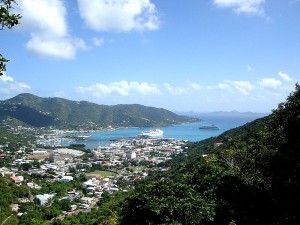
There are various degrees of bi-sexual desire, with many of these people married (willingly or unwillingly) to the opposite gender. Then there are many behaviors that diversify according to circumstances such as institutional homosexuality (in same-sex schools, prisons, military troops).
Another homosexual population is the sex-trade ‘industry’, gay and straight that populate the world over. Some of these are captive sex-slaves (mostly heterosexual females) abducted from their homes and forced into the trade while many others are not slaves but are attracted by the money from paying clients including tourists.
There is copious documentation of the sex tourism in the Caribbean which plays on the stereotype of the genitally well-endowed Afro-Caribbean male who is ever-present on the islands, often looking to satisfy the ‘lonely’ ladies and gents who come knowingly to the islands in quest of pleasure. “On certain street corners throughout the islands, West Indian males strike a familiar pose with one hand resting authoritatively on the crotch, with an occasional squeeze. Sometimes this is simply a reassuring habit, a reminder that the bamboo is ready for action”; often a poser (rent-boy or gay-for-pay or taxi boy) is more assertive and inviting toward his targeted visitor, certainly more overt than the usual ‘look’ often associated with gay cruising.
It should be added, however, that erotic fantasies often translate into less than fun times: in a recent study, “women did not have a satisfying sex experience: said one, the average West Indian man’s “understanding of good sex is restricted to painful banging”. As well, women of the Caribbean are speaking more openly now of their partners’ insensitivity and ignorance.” So, a good endowment does not ensure good quality.
Dangerous, Dark and Down-Low
A highly sensitive variant of Caribbean sexuality can be read on a new online website called Discreet City, “the first online magazine created by and for Masculine Gay/Bisexual Men of Color.”
One of their dozen-plus categories of information (politics, advice, health, social & travel, etc.) is Sex & Dating that includes talk about being on the ‘down low’, heterosexually married men who have sex with other men. (Although undocumented, women can also engage with other women.) Once a deep secret in the closet and underground, in recent years this has become widely known in the gay community–and among women and spouses. For ‘down-low’ men in the homophobic Afro-Caribbean population in the Virgin Islands it is a way of life for survival’s sake as well as a way to find authentic or momentary pleasure (and love) while avoiding exposure and public shame. These folks are virtually invisible and very private. No one is going to reveal himself willingly; it’s secretive and plays on the edge of duplicity, deception and betrayal. It is emotionally stressful and is one of the w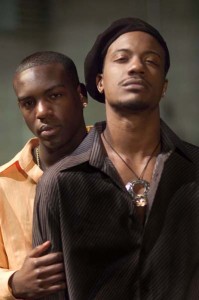 orst consequences of the disease of homophobia.
orst consequences of the disease of homophobia.
Not even a gay (or lesbian) tourist who happens to trick with a ‘down-low’ husband (or wife) is likely to know the truth about his Mr/Ms Right-Now.
Life on the ‘down-low’ life is active among the population,although probably among a minority of adults.. Two significant forces help create this behavior. First are the numerous Christian churches, most of which are branches of anti-gay mainland denominations that preach against the sin of homosexuality, indeed any sex outside of marriage. Secondly, less overt but equally powerful is the inherited African ethos of male machismo masculinity that infuses an individual’s masculine development, which starts in childhood. (See this sad report.) (It seems women are not acknowledged when it comes to homosexuality in the Afro-Caribbean culture, which leads to both a certain feminine freedom as well as ignorance about same-sex intimacy.)
The status of local LGBT people is one of living discreetly to avoid the stigma deriving from cultural, religious, and social taboos and beliefs. “It appears that any expression of sexuality outside patriarchal heterosexuality is uniformly unwelcome,” wrote one researcher. Ironically, the long standing tradition of crimalizing homosexual behavior was initiated by the British (now a leader in gay-lib) when many Caribbean islands were forced into becoming colonies of the once-great Empire. The historic prejudice against homosexuality in the African cultures was imported to the Caribbean with slavery in the 18th and 19th centuries. Slavery was outlawed around 1848 in BVI.
Modern Gay Desire
Another of Discrete City’s categories is Advice in which the following plea was recently sent:
Dear Discreet City,
“I’m a 22-year-old, gay, Afro-Caribbean man living in the US Virgin Islands and I’m at my wits’ end in trying to find friendship and companionship. No visible community exists here and I haven’t found the so-called underground community either–yet. I lack friends who can truly understand me. Online attempts to find “friends” have been disappointing. Gay men (and women I suppose) here stay very closeted and don’t identify as gay or bisexual, so there’s no queer community for me to contact.”
The adviser (edited here) goes on to say: “…being ‘down low’, in the closet and underground, is a way of life for survival’s sake, so no one is going to reveal himself easily; it secretive and that’s why it’s called that… Although friendship is supposed to enhance your life, allowing yourself to be dependent on them for your own happiness is not a healthy way to live… You are responsible for your own happiness not the people you will meet. Solitude and isolation, for now, can give you time to strengthen yourself mentally, physically and spiritually (build self-confidence) so when you do come across potential people who you may want to explore friendship or intimacy with, you will be more grounded and more secure to recognize genuine people to allow into your space…”
The second half of the reply urges Mr Lonely-heart to “come up with a plan to break out and away from your island and live abroad… Don’t just think about DC or NYC, but also about Canada and other countries in Europe where it may be easier to obtain citizenship or work visa status. Or what about other islands like Trinidad and Tobago, which is closer to you and where there’s a bigger and more visible gay scene than any other regional country except Puerto Rico?…”
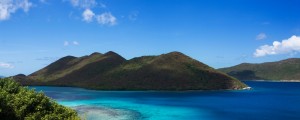
In contrast to this sad young man, today’s gay visitor to BVI for a week or two can easily walk around (without PDA) and not be disturbed, not so much due to liberal tolerance but because sexual orientation is invisible. It can only be discovered by behavior, most of which occurs out of public view. So most visitors go home with favorable memories, photos and a sun tan. For a considerably higher budget there is even a gay-friendly yacht renting service.
The BVI are numerous but small in size and population so no official gay scene or organization exists. As with with other Caribbean islands being in close proximity to the US allows for many gay and lesbian visitors to easily come and go but virtually none settle in sufficiently enough in numbers to form a cohesive community with activists and a rights agenda. Not surprisingly, native Afro-Caribbean gays, mostly closeted, would be very hesitant to join any organization headed by white folks and even more reluctant to risk being out too far in their society.
Regarding gay marriage, liberal as mainland UK is toward LGBT issues today, same-sex marriage is not yet legal there and neither is it in the BVI. The majority of the island population (83%) are Afro-Caribbean, descended from the slaves brought to the islands. They are more African, more religious and more conservative, i.e. homophobic. even though the constitution prohibits discrimination against anyone, including people with a variant sexual orientation. (Apparently the lack of same-sex marriage opportunity is not seen as discriminatory).
The Brits and Yanks
Since there are many similarities in culture, law, attitudes, weather and proximity between the British and American Virgin Islands, many of the preceding observations about LGBT life in the BVI also apply to the USVI. Reading both stories offers useful insight into these ‘paradise islands’ and the popular gay tourist scene as well as not-so-easily-seen Afro-Caribbean gay lives.
Also see:
http://www.islandmix.com/backchat/f9/gay-men-caribbean-27490/
http://glq.dukejournals.org/content/18/2-3/277.abstract
http://www.gotostcroix.com/
Richard Ammon
GlobalGayz.com
August 2012

